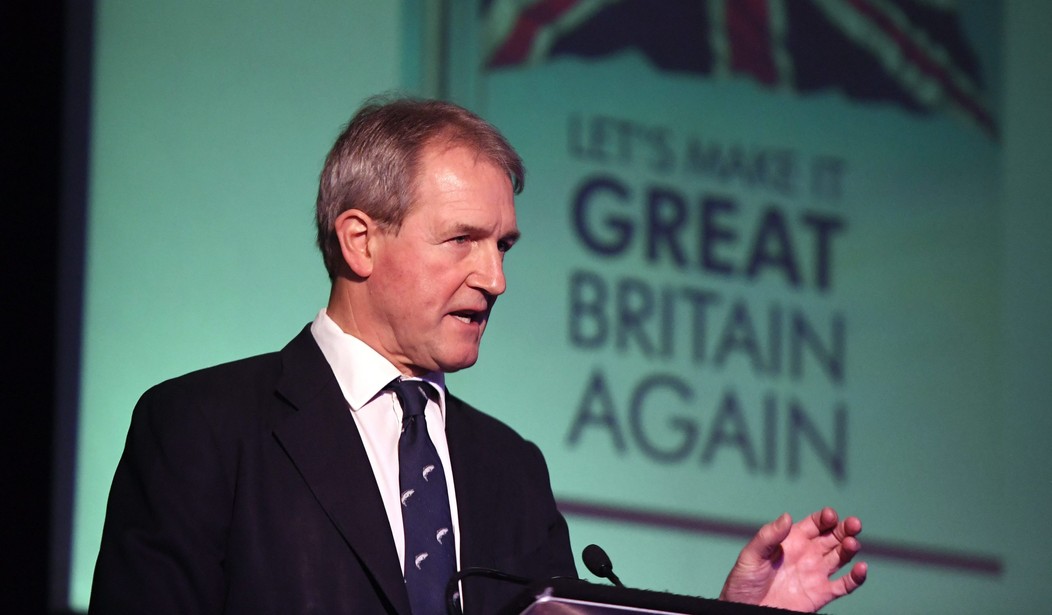WASHINGTON – UK Member of Parliament Owen Paterson on Thursday called for “very loud” voices in support of a swift UK exit from the EU, so that the U.S. and the UK can quickly iron out a bilateral trade deal.
“It’s really important that we have very loud voices in the States saying that as rapidly as possible you want a full departure of the UK from the (EU) Single Market, the (EU) Customs Union, so that we can start renegotiating with you because until we’ve left, we can only talk. We can’t actually sign,” Paterson, one of the major architects for the 2016 Brexit campaign who represents North Shropshire, said at the Heritage Foundation.
Shortly after taking office, President Trump said in an interview with former Tory leadership contender Michael Gove that the UK was “smart” to initiate Brexit. The president described the EU as a vehicle for Germany, and promised to negotiate a trade deal with the UK “quickly” after the exit.
“I think you’re doing great,” Trump said in his first speech as president on the UK in January. “I think it’s going great.”
British negotiators led by Brexit Secretary David Davis have been bickering over a potential “divorce bill” for the impending March 2019 exit, which UK voters approved in June 2016. While the EU has asked the UK to forfeit an exit fee as high as $120 billion, conservative MPs have argued that the UK has no legal obligation to pay anything and that the EU instead should pay Britain $11.7 million for the UK’s share of the European Investment Bank. Davis has said that he expects the debate over the divorce bill to last through sometime in 2018.
“We’ll pay,” Paterson said on Thursday. “We will of course. We’ll pay what we legally owe.”
Reuters reported last week that EU officials are preparing for the worst-case scenario, in which talks completely collapse and no deal is struck 18 months from now. European Union negotiator Michel Barnier said in July that his side wants to be prepared for “all eventualities, including ‘no deal.’”
Paterson, the UK’s secretary of state for Environment, Food and Rural Affairs from 2012 until 2014, called recent requests from the EU “outlandish” and “arbitrary.” During his speech, he reeled off a number of statistics showing the success of other nations operating independently. He said India’s GDP has grown between 7 and 10 percent for the past decade “as a result of economic liberalization,” while Brazil has averaged 3 percent growth.
To open the discussion, Paterson compared the UK’s Brexit to America’s fight for independence from Great Britain, while quoting the Declaration of Independence and President George Washington throughout his talk. He described the revolution as a result of American dissatisfaction with British overreach in the colonies.
“You wanted to decide how to spend your own money, not to be told to send it off to Great Britain,” he said.
Paterson pointed to declining UK exports to the EU, from 61 percent in 1999 to 43 percent today — and projections showing that number could fall below 35 percent by 2025. About 12 percent of the UK’s GDP is directly accounted for by exports to the EU, he noted, while in 2015 the U.S. accounted for 19.7 percent of the UK’s exports and 11.1 percent of the UK’s imports.
He called on the “age-old truth” that a “sovereign country will be more successful when it governs its own affairs,” and lamented the fact that the UK pays the EU about $11 billion net annually. Paterson said the ultimate goal is “reciprocal, free trade without tariffs.”









Join the conversation as a VIP Member